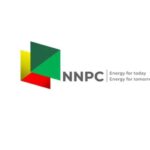The International Monetary Fund (IMF) has again raised concerns about petrol subsidy, asking the Federal Government to stop subsidising petrol cost.
The organisation also expressed concern with the volume of fuel consumption and tax write-offs by the Nigerian National Petroleum Company (NNPC).
IMF made the statement after it concluded its annual mission exercise in Nigeria.
“Public finance is under stress with elevated fiscal deficits, high debt servicing costs and public debt projected to increase over the medium term.”
“It leaves little fiscal room for vital social spending on education and health, where Nigeria fares poorly compared to peer countries in sub-Saharan Africa.
“Despite higher non-oil revenues relative to 2021, the General Government (GG) fiscal deficit is projected to widen to 6.2 percent of Gross Domestic Product (GDP) in 2022, mainly due to fuel subsidy costs. Without bolder revenue mobilization efforts, costly fuel subsidies and rising debt servicing costs will keep overall fiscal deficits above six per cent of GDP in the medium term raising public debt to about 43 per cent of GDP by 2027.”
It recommended strengthening of agriculture, saying in 10 years, about 25 million more jobs will be needed to employ the new labour market entrants.
The IMF also said it was worried about elevated inflation, fuel subsidies and foreign exchange crisis.
It said with the recent flooding, high fertiliser prices and other issues, could become more entrenched impacting negatively both agricultural production and food prices in 2023.
Volatility in the parallel forex market and continued dependence on CBN financing of the budget deficit could exacerbate price pressures.
As an urgent step, the international body urged revenue mobilization and fuel subsidy reforms, and two other reforms to create fiscal savings of close to 6 percentage points of GDP during 2023-27 while also making room for higher social spending.
“As a near-term priority, the mission highlighted the urgent need to remove fuel subsidy fully and permanently, which disproportionately benefit the well-off, by mid-2023 as planned.”
“The government should also prioritize addressing oil thefts and governance issues in the oil sector to restore production to pre-pandemic levels.
“Nigeria must also step up tax administration reforms by automating tax, expand coverage, modernise customs operations and improve effectiveness of the State Internal Revenue Service’s administration of the Pay-As-You-Earn (PAYE) system, and strengthen inter-agency coordination and data sharing.”
IMF also said Nigeria must adjust tax rates “to levels comparable to the average in the Economic Community of West African States (ECOWAS) as compliance improves. This includes further increasing the Value Added Tax (VAT) rate to 15 per cent by 2027 in steps while stop various VAT exemptions. Nigeria should also increase excise rates on alcoholic and tobacco products while broadening the base and cutting waivers.”

 Join Daily Trust WhatsApp Community For Quick Access To News and Happenings Around You.
Join Daily Trust WhatsApp Community For Quick Access To News and Happenings Around You.


